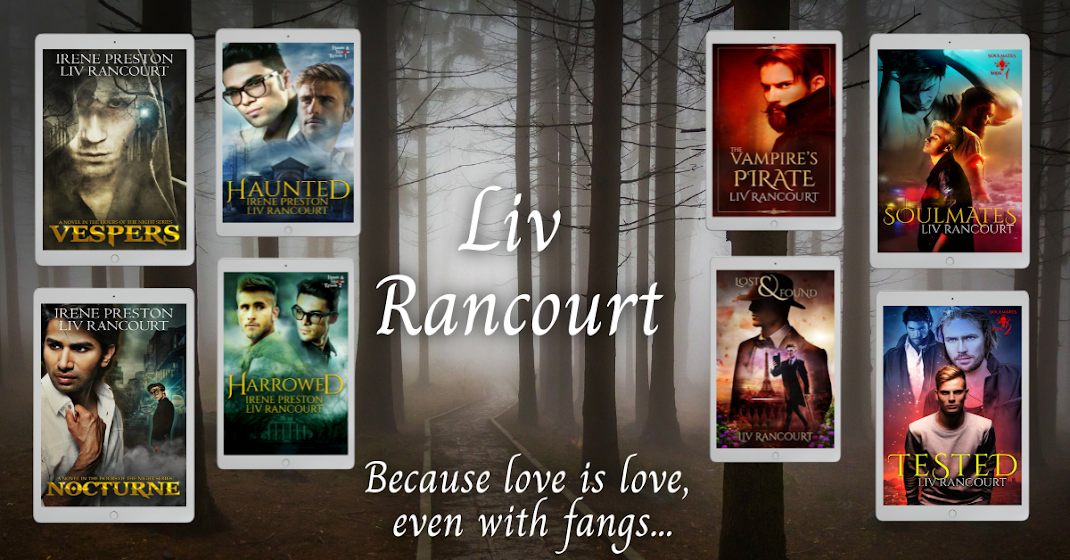Peace,
Liv
I can’t tell you how many times I’ve heard a writer ask this
question. “I’ve written this book, and it has suspense and romance and comedy
in it. What genre is it?” And so many times I’ve heard this response: “Just
write the book you want to write and then figure out what to call it. It’s
probably the same kind of book you like to read.”
We do have to write the books that are in us. But honing the
genre is important when it comes time to send out prepare a synopsis, send out
queries and actually sell your story. Agents and editors represent certain
genres, bookstores shelve according to genre, and readers choose books
according to genre. There are blended genres, like historical romance, romantic
mystery, romantic cozy, or women’s historical fiction.
Sometimes a new writer deliberately tries to create new
combinations, to be unique, and sometimes it just turns out that when the first
draft is completed, it has elements of mystery, romance and drama, or some
other combination. Or it doesn’t seem to fit into any genre. I tried really
hard to write an historical romance and ended up with a western. The subject of
genre can be confusing even for experienced writers.
So how do we solve the problem of how to fit our wonderful
stories into some category seemingly created to make our lives harder?
When I started writing my debut novel, Ultimate Justice, A Trey Fontaine Mystery, the plan was for it to
be a thriller. Then it took a turn as an element of romance was introduced. But
wait, wasn’t it really about the main character, Trey Fontaine, the FBI agent,
and two homicide cops, which would make it a police procedural. After twenty or
so revisions, I realized that the most important element of this story was the
mystery. The mystery affects every
character in the book.
I am now of the opinion that while we are writing our first
draft, we need to just write the story that is in us. And then when that first
creative burst is over and it has been stashed away for a week or two, it’s
time to read it fresh, bearing in mind that if it is to be sold in the current
market, it has to have a main category.
What is the major plot about? Who is the main character and what makes
that character change throughout the story? What is the strongest element in
the story? Chances are that if you write
fiction, you read fiction, so you know about genres.
Go to the bookstore, or to Amazon.com, (or in my case, to
the five hundred or so books scattered about my home) and look at some
categories. Are there any authors whose work reminds you of your own? Don’t
fall into the trap of comparing your skill with another writers’. The question
is not about the skill, but about the style, theme, pace, etc. Read some books
in the genres you think your story fits into, and analyze it. Who is the major
character, and what happens to him/her? What do you see as the most important
part of the plot?
Read books by authors whose work feels like yours and just
see if maybe your book fits into that genre. For me, the best example is Greg
Iles. What feels similar between his writing and mine is the character
development. We both like to delve into characters. And we both write at a medium pace. Turns out
he writes more in the thriller genre, but with a mystery. Whereas my book is a
mystery, with a little thriller genre thrown in. Don’t get me wrong—I’m not
professing to write as well as Greg Iles. But as I compared my story to the
stories of my favorite authors, I found a familiar feel in his work.
So when writers ask me how to place their stories into
genres, I try to give them some direction that actually helps solve the issue.
What genre is it? That’s an important question for every writer. I found a way
to answer the question for myself. I hope my methods help others too.
Ultimate
Justice, A Trey Fontaine Mystery is receiving rave reviews from readers. http://www.ll-publications.com/ultimatejustice.html
The small town
of Raven Bayou Louisiana
A graduate of the University of California Louisiana


Great post! I think for the most part, I don't have a problem deciding what genre it is. (something I love about self-publishing is being able to publish in ANY genre). Except for my first book. It's about a 19-year old. It COULD be YA. But I think it's also women's fiction. But a very good post, and I agree.
ReplyDelete(From email communication with Shannon O'Brien, after the internet fairies wouldn't let her leave a post.)
ReplyDelete"Wonderful post! Liv and I have been discussing this issue for the past couple of months. The book I'm wrapping up is a melting pot of genre's and I'm having a hard time narrowing it down before promoting it. It's a mixture of Dan Brown pace/thriller, Anne Rice supernatural horror, and Rosemary Rogers tortured romance. Ack!"
April - the ability to self-publish has really turned things around and given a lot of people more flexibility. Thanks for checking out the post!
ReplyDeleteLiv
Great post! Oh my. What genre am I? I'm gonna say: comedy, drama, romance. Because that's the tag I got off "Love Actually" and I'm kind of like that!
ReplyDelete